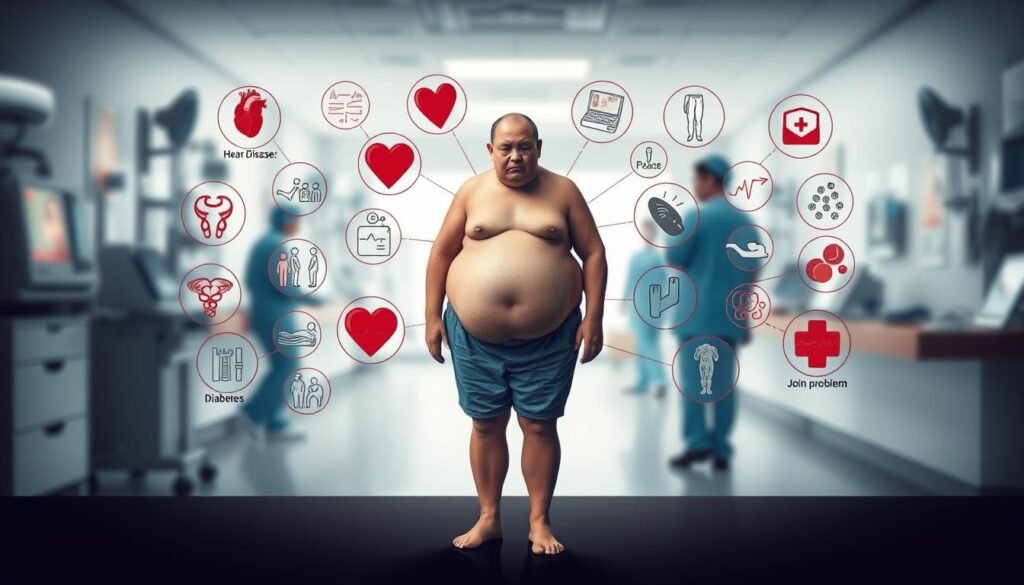I’ve stood where you might be now—staring at old photos, wondering why every attempt to lose weight felt like running in quicksand. The scale never budged enough, and clothes never fit right. It’s exhausting to feel like your body refuses to cooperate, no matter how hard you try.
Christine Audler, founder of Fight Fat Forever Inc., taught me something revolutionary: the phrase “fat forever” isn’t a life sentence. She redefined it as “Fight A Temptation,” shifting the focus from self-blame to actionable resilience. What if your struggles aren’t about willpower but about untangling habits and emotions?
This isn’t another quick-fix pitch. I’ve spent years studying why traditional diet plans fail people who’ve carried extra weight for decades. The answer lies in addressing both the science of calorie deficits and the stories we tell ourselves about what’s possible.
Let’s dismantle the myth that biology dictates destiny. Your past doesn’t have to blueprint your future. Together, we’ll explore how small, intentional changes—not grand overhauls—create lasting loss.
Key Takeaways
- Weight challenges often stem from psychological patterns, not just physical habits
- Reframing food as fuel—not an enemy—builds sustainable progress
- Long-term success requires addressing emotional triggers alongside nutrition
- No one is biologically “stuck” at a certain weight despite years of struggle
- Practical micro-changes outperform extreme restrictions every time
My Personal Journey and Understanding My Weight Struggles
Growing up, I measured my worth by jean sizes and dressing room meltdowns. Every diet started with hope but ended in guilt—until I realized my weight wasn’t the problem. It was the unexamined patterns governing my journey.
Reflections on a Lifetime of Weight Challenges
I spent years blaming my body for resisting quick fixes. But tracking my habits revealed a truth: late-night snacks weren’t about hunger. They were Band-Aids for stress. Like Dr. Donald Layman’s insight:
“Genetics load the gun—behavior pulls the trigger.”
My triggers? Boredom, loneliness, and outdated beliefs about food rewards.
Old diet plans failed because they ignored nutrition literacy. I’d eat “low-fat” snacks packed with sugar, then wonder why cravings spiked. Understanding macros—proteins, fats, carbs—changed everything. Food became fuel, not therapy.
What My Past Taught Me About Nutrition and Self-Care
Self-care isn’t kale smoothies alone. It’s prioritizing sleep to balance hunger hormones. It’s walking after meals to stabilize blood sugar. Most importantly? Recognizing that appetite often masks emotional needs—a lesson my weight loss journey hammered home.
I stopped labeling foods as “good” or “bad.” Instead, I asked: Does this nourish my cells or numb my feelings? This shift helped me build meals around protein and fiber—not punishment or pride.
Embracing the “fat forever” Mindset and Beyond
For years, I wore the phrase “fat forever” like a lead apron—heavy, suffocating, and impossible to remove. Then I discovered words aren’t prisons unless we build cells with them.
Redefining What Being “Fat Forever” Means
Christine Audler’s rebrand of “fat forever” to “Fight A Temptation” flipped my script. Instead of surrendering to biology, I began battling triggers—one intentional choice at a time. The scale became a compass, not a judge.
I stopped seeing my weight as a life sentence. Those who maintain success long-term aren’t magically cured. They’re architects building guardrails against old patterns. My midnight snacks? Now conversations with hunger cues: “Is this nourishment or noise?”
This mindset shift dissolved shame. Food became fuel, not failure. I traded “good vs bad” labels for curiosity: “What does my body need today?” Progress wasn’t linear, but it was mine.
True change began when I stopped fighting my reflection and started fighting temptations. Every meal became a choice, not a chain. That’s the way forward—not perfection, but persistent redirection.
Essential Weight Loss Strategies That Actually Work
Let’s cut through the noise: weight loss thrives on simplicity, not complexity. After years of trial and error, I discovered two non-negotiable pillars—the science of energy balance and the art of flexible eating.

Caloric Deficit: The Core Principle
Physics doesn’t negotiate. As Dr. Layman often says:
“You can’t gain weight in a caloric deficit—it’s thermodynamics.”
My approach? Track intake using apps like MyFitnessPal for two weeks. This reveals hiddencaloriesin “healthy” snacks and drinks.
I aim for a 300-500 daily deficit. Too aggressive? Metabolism slows. Too mild? Progress stalls. Balance matters. Protein becomes your ally here—it keeps muscles intact while shedding pounds.
Flexible Dieting and Its Practical Guidelines
No food is forbidden, but awareness is mandatory. One nutritionist put it bluntly:
“Eat the cake—just don’t eat the whole bakery.”
Here’s how I make it work:
Prioritize protein first—chicken, Greek yogurt, eggs. It curbs hunger and protects muscle. Add fibrous veggies for volume. Then allocate remaining calories to carbs and fats based on cravings.
Saturday pizza? Yes—but I’ll pair two slices with a salad. This keeps me sane while hitting weekly diet targets. Flexible eating isn’t chaotic eating. It’s strategic indulgence within boundaries.
Navigating Diet Wars and Nutrition Myths
The nutrition world feels like a battlefield sometimes—keto warriors here, vegan evangelists there. I’ve learned these conflicts often distract from what truly matters: building a diet that works for your life, not someone else’s ideology.

Understanding Good and Bad Foods Without Labels
Early in my health journey, I’d panic if I ate “bad” foods like pasta or chocolate. Now? I see foods as puzzle pieces. A cookie isn’t evil—it’s just 150 calories needing balance with protein-rich meals later. As one study notes:
“Nutritional value exists on a spectrum, not a binary.”
This mindset stopped my binge-restrict cycles. I plan treats into my daily caloric budget instead of banning them. Result? Fewer cravings, more consistency.
Debunking Common Weight Loss Myths
Social media peddles three big lies: “Cut carbs to shrink fat,” “Detox teas boost results,” and “This diet works for everyone.” Truth? Sustainable nutrition isn’t about extremes.
Here’s what actually matters:
- Total calories versus energy burned
- Protein intake to preserve muscle
- Flexibility to enjoy occasional indulgences
I stopped chasing “miracle” diets. Now, I focus on habits I can maintain for years—not weeks. That’s the way to lasting change.
Building a Structured yet Sustainable Eating System
Creating lasting change requires building a system that works like guardrails on a winding road—firm enough to keep you on track but flexible enough for life’s detours. My approach balances routine with spontaneity, letting me enjoy Friday night pizza without derailing progress.

Tools and Techniques for Daily Tracking
I start each day with a protein-packed breakfast logged in MyFitnessPal. Research shows daily weigh-ins improve long-term success rates. As one study notes:
“Consistent tracking builds awareness—the foundation of intentional eating.”
My kitchen scale and food app become allies, not jailers. I plan 80% of meals around lean proteins and veggies, leaving room for spontaneous treats. On busy days, pre-portioned snacks prevent grab-and-go chaos.
When dining out, I scan menus early and eat lighter meals beforehand. This “protein-first” strategy curbs overeating later. Sunday meal prep ensures ready-to-go options—grilled chicken, roasted veggies, hard-boiled eggs—that make healthy choices effortless.
The system thrives on simplicity: repeat base meal templates with flavor twists to avoid boredom. Taco-seasoned turkey instead of plain. Ginger-lime dressing over basic vinaigrette. Small variations keep taste buds engaged while keeping tracking straightforward.
Leveraging Expert Advice and Scientific Studies

Science became my compass when frustration clouded my path—expert advice and peer-reviewed studies replaced guesswork and desperation. This shift transformed my approach from chaotic trial-and-error to strategic, evidence-based decisions.
Key Insights from Leading Nutrition Experts
Registered dietitian Dr. Emily Cooper once told me:
“Sustainable weight loss isn’t about perfect choices—it’s about consistent ones that fit your life.”
This mirrors what I learned analyzing research: those maintaining significant loss focus on systems, not willpower. They automate healthy choices through meal prepping and routine.
I now build my nutrition plan around three expert-backed pillars:
- Protein-first meals to preserve muscle
- Fiber-rich snacks to stabilize energy
- Strategic indulgences to prevent binges
Lessons from Research on Weight Loss and Lifestyle
A landmark study tracking 10,000 participants revealed key differences between short-term dieters and lifelong maintainers:
| Behavior | Short-Term Dieters | Long-Term Maintainers |
|---|---|---|
| Snacking Frequency | 4+ times daily | 1-2 planned snacks |
| Self-Monitoring | Weekly weigh-ins | Daily tracking |
| Meal Consistency | Varies widely | 80% routine meals |
| Stress Management | Emotional eating | Mindful movement |
This research reshaped my habits. I stopped grazing mindlessly and started scheduling snacks. Meal templates became my safety net during busy weeks. Most importantly? I stopped viewing weight loss as temporary—it’s now part of my identity.
By blending expert guidance with scientific findings, I created a flexible system that survives vacations, holidays, and bad days. That’s the real loss—not pounds, but the burden of constant doubt.
Strategies for Managing Behavior and Opportunity Costs
Stressful moments test every weight loss journey. I’ve learned that life’s storms—job losses, grief, new responsibilities—don’t pause for health goals. As my nutrition coach once warned:
“Your diet isn’t a bubble—it exists in the messy reality of daily living.”

Overcoming Emotional and Situational Triggers
I map my danger zones like a general preparing for battle. Late-night boredom? I paint instead of pantry-raiding. Office donuts? I keep almonds in my desk. Research shows willpower weakens under stress, so I design rules needing minimal effort.
Every choice carries opportunity cost. Eating fries today might mean skipping dessert tomorrow. I ask: “Does this align with my long-term vision?” This mindset stops impulsive decisions without guilt.
Mindset Shifts for Long-Term Success
I stopped chasing short-term fixes. Now, I focus on systems that survive chaos. Meal prepping on Sundays ensures healthy options during hectic weeks. A support group message replaces midnight snacking.
Setbacks became teachers, not enemies. When stress derails me, I analyze triggers instead of self-shaming. As one study found:
“Those viewing slip-ups as data points maintain results 3x longer than perfection-seekers.”
My lifestyle now bends without breaking—flexible enough for celebrations, firm enough to prevent backslides. That’s how success sticks.
Conclusion
Breaking free from lifelong struggles to lose weight begins with one truth: your past doesn’t define your future. Sustainable weight loss isn’t about radical diets—it’s building a lifestyle rooted in science and self-awareness. The core principles remain simple: fuel your body with adequate protein, maintain a modest caloric deficit, and create flexible meal patterns that adapt to real life.
Success hinges on consistency, not perfection. Life will disrupt your plans—stressful days, unexpected events, moments of weakness. That’s why effective strategies minimize reliance on willpower. Automate healthy choices through meal prep, track progress without obsession, and view setbacks as data points, not failures.
True transformation requires rewriting your relationship with food and self-worth. Nourish your body for energy and vitality, not punishment or reward. Lasting change takes time, but every intentional choice moves you closer to lifelong health. You’re not chasing quick fixes—you’re constructing a new foundation, one brick at a time.






